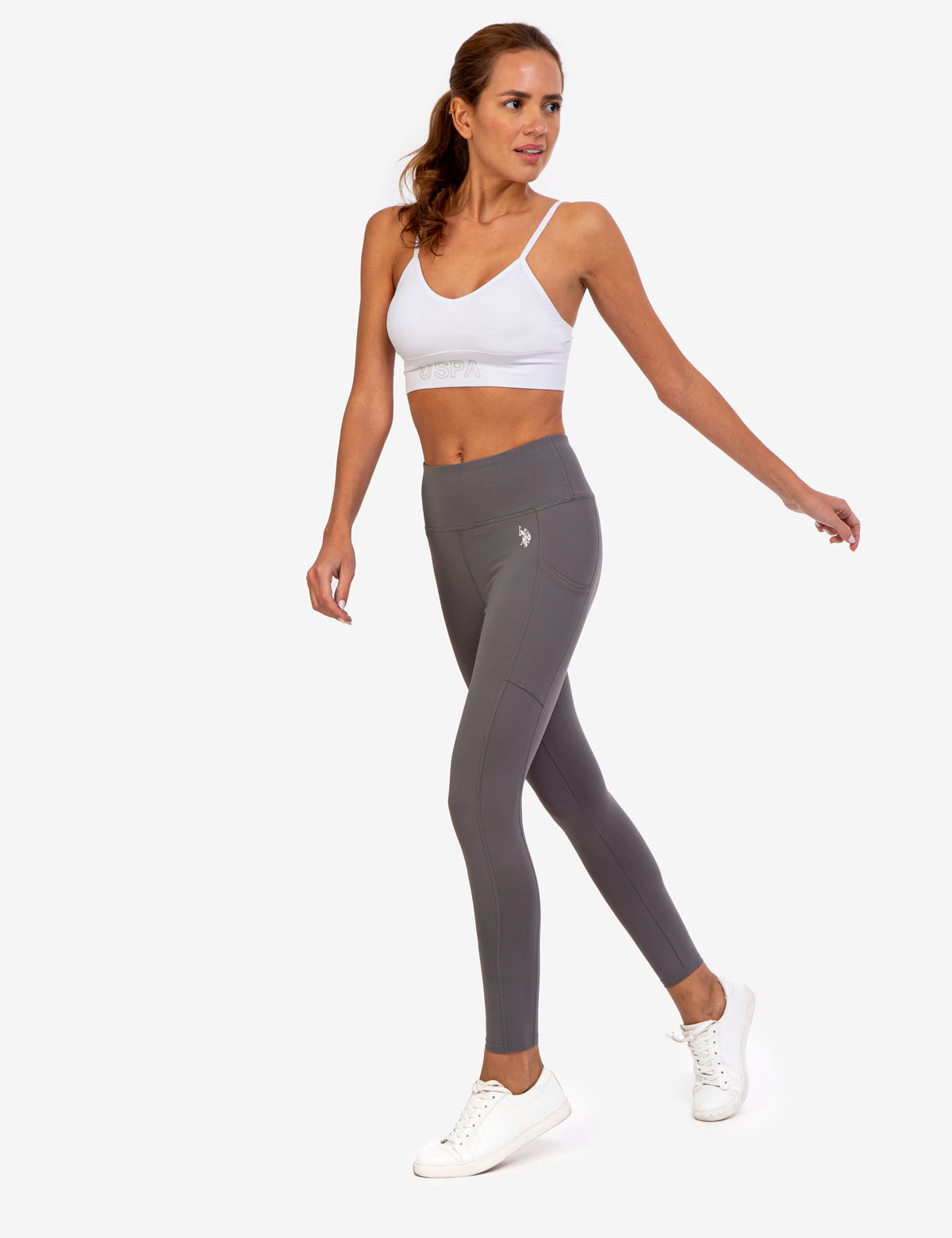How do 24-h movement behaviours change during and after vacation
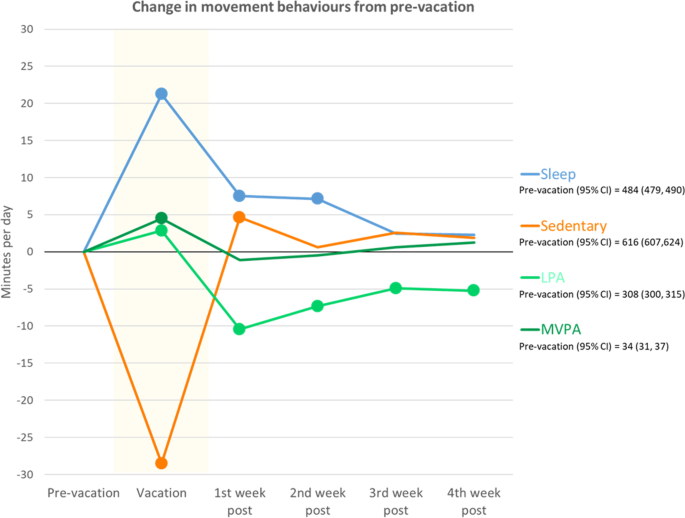
For adults, vacations represent a break from daily responsibilities of work – offering the opportunity to re-distribute time between sleep, sedentary behaviour, light physical activity (LPA) and moderate-to-vigorous physical activity (MVPA) across the 24-h day. To date, there has been minimal research into how activity behaviour patterns change on vacation, and whether any changes linger after the vacation. This study examined how daily movement behaviours change from before, to during and after vacations, and whether these varied based on the type of vacation and vacation duration. Data collected during the Annual Rhythms In Adults’ lifestyle and health (ARIA) study were used. 308 adults (mean age 40.4 years, SD 5.6) wore Fitbit Charge 3 fitness trackers 24 h a day for 13 months. Minute-by-minute movement behaviour data were aggregated into daily totals. Multi-level mixed-effects linear regressions were used to compare movement behaviours during and post-vacation (4 weeks) to pre-vacation levels (14 days), and to examine the associations with vacation type and duration. Participants took an average of 2.6 (SD = 1.7) vacations of 12 (SD = 14) days’ (N = 9778 days) duration. The most common vacation type was outdoor recreation (35%) followed by family/social events (31%), rest (17%) and non-leisure (17%). Daily sleep, LPA and MVPA all increased (+ 21 min [95% CI = 19,24] p < 0.001, + 3 min [95% CI = 0.4,5] p < 0.02, and + 5 min [95% CI = 3,6] p < 0.001 respectively) and sedentary behaviour decreased (-29 min [95% CI = -32,-25] p < 0.001) during vacation. Post-vacation, sleep remained elevated for two weeks; MVPA returned to pre-vacation levels; and LPA and sedentary behaviour over-corrected, with LPA significantly lower for 4 weeks, and sedentary behaviour significantly higher for one week. The largest changes were seen for “rest” and “outdoor” vacations. The magnitude of changes was smallest for short vacations (< 3 days). Vacations are associated with favourable changes in daily movement behaviours. These data provide preliminary evidence of the health benefits of vacations. The study was prospectively registered on the Australian New Zealand Clinical Trial Registry (Trial ID: ACTRN12619001430123).
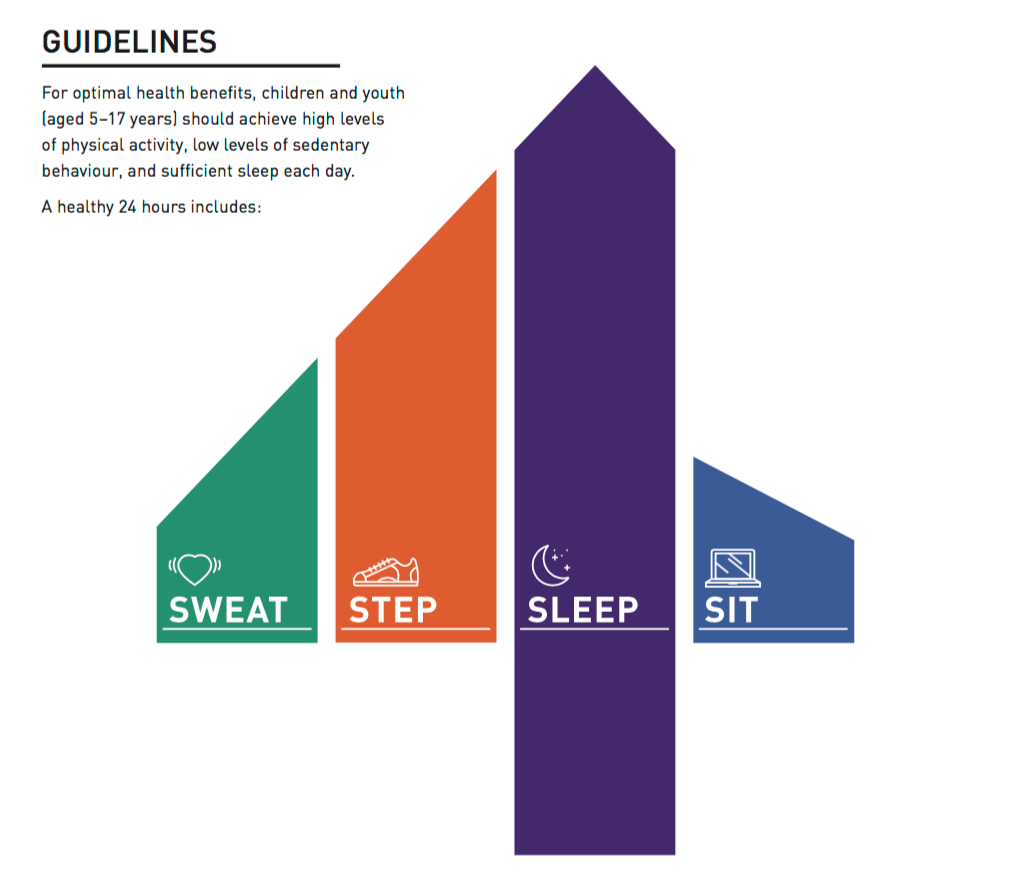
UM Today, Faculty of Kinesiology and Recreation Management

COVID-19 is linked to changes in the time–space dimension of human mobility

Travel agent says Air Transat is dropping base fares to as low as $2 to avoid commissions

Research Hub
:max_bytes(150000):strip_icc()/GettyImages-10923262041-e5caa5ad2f0e49f8a583e77e36431d6a.jpg)
6 Healthy Travel Tips to Maintain Fitness and Nutrition Goals, According to a Personal Trainer
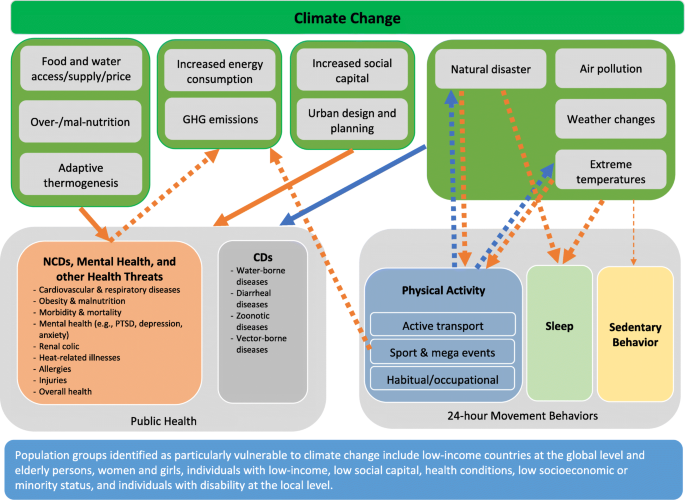
Climate change, 24-hour movement behaviors, and health: a mini umbrella review, Global Health Research and Policy

Moving, Sitting and Sleeping for Optimal Health in Young People
Research Hub
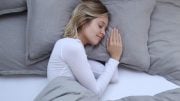
New Study Reveals That a Four-Day Work Week Can Improve Health

3 Common Dieting Myths Busted By Your Microbiome - Seed

The whole day matters: Understanding 24-hour movement guideline adherence and relationships with health indicators across the lifespan - ScienceDirect

Pittwater Online News





